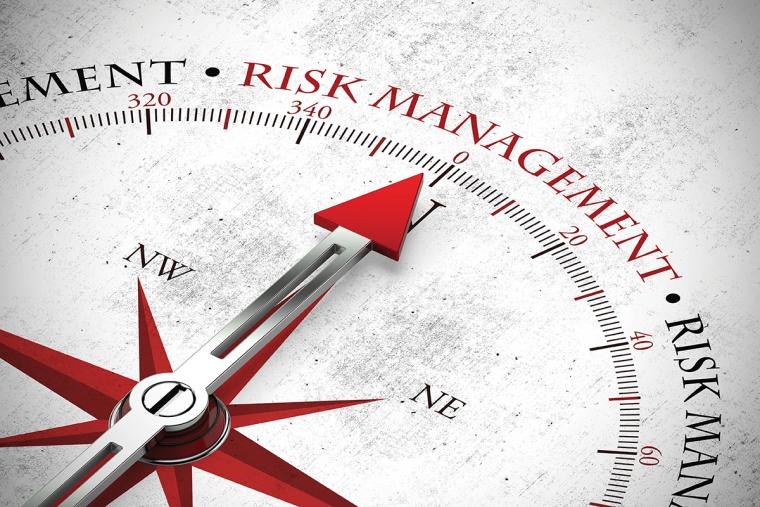
Risk management is an essential issue in the sports business and travel industry, but because of its complexity, it’s a subject not fully understood by many. The purpose of this article is not to make someone an expert but instead to provide an overview of what risk management is and of the importance of having a good risk management plan.
Perhaps the first – and most important – point is this: find a competent professional in the field of risk management to help you. The Internet is full of resources, fact sheets, documents and websites, but nothing can or will take the place of a professional (or a firm) who will take the time to understand your event or your company and to help you make the best choices with the resources available on the market.
There are professional associations and certifying bodies for risk management, and these may be a good start. Other excellent individuals to ask are your financial advisor, your corporate attorney or your insurance professional. Contact colleagues in the sports event planning field or check with your own professional or trade association to see if there are recommendations.
Risk management as a whole means identifying all the risks that may exist in a given situation. In short, you should begin by asking yourself the following questions with regard to your event:
• What might go wrong?
• How might we keep this from happening?
• If it does happen, what will our response be?
• How will we pay for any monetary or legal damages resulting from something going wrong?
An important part of risk management is developing a comprehensive answer for each of these questions and a plan of action that includes your overall response. This is done by identifying your risks (also known as your potential areas of exposure and loss), evaluating those risks, examining your options, deciding upon a comprehensive plan and putting it into place.
 Your professional partner will be able to help you create a road map that uses the resources that work for you, within the budget you have. He or she may also be able to help identify areas of risk you might not be aware of, and to suggest ways to lower or eliminate that risk. Remember that professionals are often able to access data you cannot find on the Internet and they will have a broader knowledge base when it comes to creating these plans.
Your professional partner will be able to help you create a road map that uses the resources that work for you, within the budget you have. He or she may also be able to help identify areas of risk you might not be aware of, and to suggest ways to lower or eliminate that risk. Remember that professionals are often able to access data you cannot find on the Internet and they will have a broader knowledge base when it comes to creating these plans.
Of course, one of the best tools in risk management is insurance and this article will cover a few types of coverage that can help mitigate your loss. Many people, however, confuse risk management with insurance. Insurance is one aspect of a good risk management plan; however, it is not the only part. Of course, having a good risk management plan does make your event (or your company) a better partner when it comes to insurance. Your professional partners in both risk management and in insurance can work together to help you pick out the products that are best for you.
In looking at the four previous questions, it’s easy to boil your risk assessment strategy down to two components: an overall assessment with an eye to preventing harm to anyone or anything, and a plan to take action that will reduce loss. That includes not only athletes and staff but your organization as well.
Your organization benefits from a good risk management plan in many ways – apart from just giving you peace of mind (although the benefits of this cannot ever be overstated). With the right safeguards in place, you’ll have a better response to any problem, from a small hiccup to a large-scale crisis. You’ll protect your company and your employees (as well as your bottom line) and save everyone a lot of time-consuming work.
A good risk management plan has some intangible benefits as well, things you won’t find in a policy or on paper. They include protecting your reputation and your brand, both of which can be damaged beyond repair if an unexpected crisis pops up and your public sees that you are completely unprepared to handle it. Since you’ve spent years creating your company’s image, it is in your best interest to safeguard it.
At this point, you might be wondering if we’re using scare tactics. Not at all! Managing your risk has little to do with fear and everything to do with prudence. The plain fact is this: we live in a litigious society. People are far more likely to sue than they were before. They see an entity such as a tournament, race or even an event management company, as being wealthy enough to pay for all manner of damages. If your organization can show that it has taken steps to keep problems from happening, and if it responds quickly and with the correct resources, your outcome should be better than that of a person who is unprepared.
As mentioned previously, one example of the ways a comprehensive risk management plan can help your company be prepared for any crisis (and a resulting legal action) is by providing the proper insurance. Some types available include (but are not limited to) the following:
- General liability insurance: This protects you and your business from so-called ‘general claims’ involving bodily injuries and property damage. General liability insurance can help cover medical expenses and attorney fees resulting from bodily injuries and property damage for which your company can be held responsible, or liable.
- Professional liability (including a rider covering sexual abuse claims): It is sometimes called errors and omissions (or E&O) insurance
- Workers compensation: As it sounds, this covers lost wages and medical treatment resulting from an employee’s work-related injury or illness, as well as any services needed to get that employee back on the job (one example might be physical therapy)
- Disability insurance: This guarantees income protection to individuals who become disabled for a long period of time, and as a result, cannot work during that period
- Business interruption insurance: If your company’s operations are disrupted by something out of your control, such as an earthquake or fire, this type of insurance allows the business owner to collect the income he or she would have expected to generate were it not for the unexpected event
- Property coverage: This type of coverage is designed to help protect personal belongings
- Cyber liability: It’s hard to miss the news coverage of the large companies, including big-box stores, that have fallen prey to cyber crime. Cyber liability insurance covers your business in the event of issues such as a data breach that exposes sensitive information
These are far from the only types of insurance, and an organization, depending upon its specific needs, the nature of the sports it puts on and more, may require other types of coverage. Ask your professional partner for recommendations.
As mentioned previously, the complex subject of risk management on every level cannot be addressed properly without detailed information about each situation; all specific questions should be answered by a risk management company. The insurance carrier also will require risk management details. Start early, work with the right professional, have a plan in place and familiarize your staff with it so that if it does need to be used, everyone is ready. SDM

